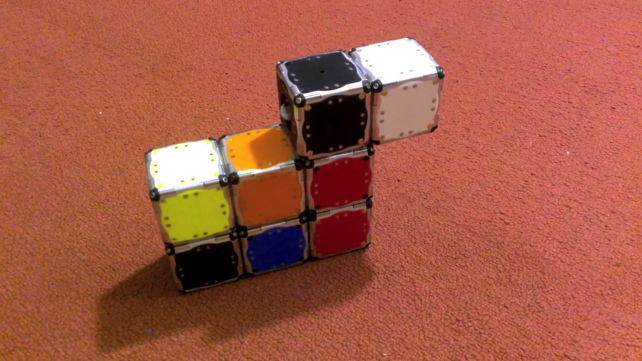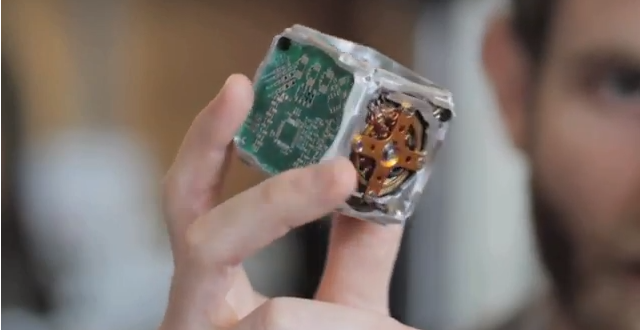Scientists have unveiled cube-shaped robots at the Massachusetts Institute of Technology (MIT), that are able to flip, jump and assemble themselves into various shapes.
These small robots have been named M-Blocks. They have no external parts but operate through an internal flywheel mechanism and it is magnets that cause them to stick together.
The scientists took inspiration from the Terminator films and envisaged the M-Blocks self-assembling like the “liquid steel” androids from the films.

More practically, researchers think that large numbers of the robot cubes could be used to make temporary repairs to bridges or buildings or even self-assembly, re-configurable scaffolding.
The advantages of modular robots is that they are able adapt to any task and terrain.

John Romanishin, one of the research scientists from the MIT’s Computer Science and Artificial Intelligence Laboratory said: “We want hundreds of cubes, scattered randomly across the floor, to be able to identify each other, coalesce, and autonomously transform into a chair, or a ladder, or a desk, on demand.”
It is hoped that over time algorithms can be loaded directly on the blocks instead of controlling them by computer instructions sent over wireless radio. This future advancement will make them entirely autonomous and capable of adapting to different environments.
The scientists hope the blocks will even be able to work out how to carry out specific tasks in combat or emergency situations.
These small robots have been named M-Blocks. They have no external parts but operate through an internal flywheel mechanism and it is magnets that cause them to stick together.
The scientists took inspiration from the Terminator films and envisaged the M-Blocks self-assembling like the “liquid steel” androids from the films.

More practically, researchers think that large numbers of the robot cubes could be used to make temporary repairs to bridges or buildings or even self-assembly, re-configurable scaffolding.
The advantages of modular robots is that they are able adapt to any task and terrain.

John Romanishin, one of the research scientists from the MIT’s Computer Science and Artificial Intelligence Laboratory said: “We want hundreds of cubes, scattered randomly across the floor, to be able to identify each other, coalesce, and autonomously transform into a chair, or a ladder, or a desk, on demand.”
It is hoped that over time algorithms can be loaded directly on the blocks instead of controlling them by computer instructions sent over wireless radio. This future advancement will make them entirely autonomous and capable of adapting to different environments.
The scientists hope the blocks will even be able to work out how to carry out specific tasks in combat or emergency situations.

0 comments:
Post a Comment